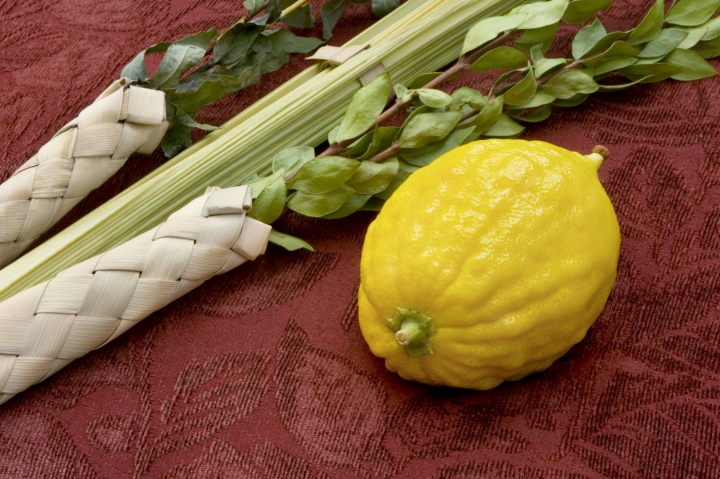 On the Jewish calendar: 15 Tishrei (September-October)
On the Jewish calendar: 15 Tishrei (September-October)
Leviticus 23:33-43 Exodus 23:14-16 Zechariah 14:16-18
The Feast of Tabernacles is uniquely mentioned in what most Christians today classify as the Parousia, or predicted events surrounding the Second Coming of the Messiah:
Then the survivors from all the nations that have attacked Jerusalem will go up year after year to worship the King, the LORD Almighty, and to celebrate the Festival of Tabernacles. If any of the peoples of the earth do not go up to Jerusalem to worship the King, the LORD Almighty, they will have no rain…. This will be the punishment of … of all the nations that do not go up to celebrate the Festival of Tabernacles.
TRADITIONAL OBSERVANCE
The LORD said to Moses, “Say to the Israelites: ‘On the fifteenth day of the seventh month, the LORD’s Feast of Tabernacles begins, and it lasts for seven days. The first day is a sacred assembly; do no regular work. For seven days present offerings made to the LORD by fire …. After you have gathered the crops of the land, celebrate the festival to the LORD …. This is to be a lasting ordinance for the generations to come….
Three times a year you are to celebrate a festival to me….. Celebrate the Feast of Harvest [also Tabernacles] with the first fruits of the crops you sow in your field. Celebrate the Feast of Ingathering at the end of the year, when you gather in your crops from the field.
HOLIDAY BACKGROUND
This Jewish holiday is rich in imagery and hands-on fun. Come to think of it, most of them are. Most, if not all, Jewish holidays involve some kind of charity, and this holiday is no different. Sukkot observance encourages hospitality (to guests both real and imaginary). This was always a very joyous time, and today, the merriment continues.
Sukkot begins five days after Yom Kippur and typically lasts eight days (including the combined holidays of Shemini Atzeret and Simchat Torah). This is a joyous festival to mark the end of the heavy sobriety of Yom Kippur as well as the hard toils of harvest.

